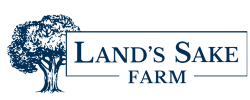It has been nearly two months since I started working as a farm-based education apprentice at Land’s Sake. Two days after moving into the Melone House I got a call from Doug telling me I was parked in front of our neighbor’s garage.” I ran up the driveway to move the car. The kindly neighbor was none other than Anna Melone. “I was born in the room you are living in,” she told me. I read in my history book that her father made a living as a subsistence farmer on the land around the house.
Now the amazing Land’s Sake crew is a part of that tradition he set in motion. It has been exciting imagining the levels of community and civic participation we can achieve and work towards those goals slowly but surely. Most of this winter I have spent planning the education garden and developing thought provoking curriculum for our farm-based summer camps. While planning is mentally stimulating, carrying heavy Maple sap through the forest and over giant snow banks kept me fit.

I started by leading Winter Farm Tours under a heavy blanket of snow. Weston kindergarteners and first-graders put on their snow pants to experience Winter on the farm, and using all five senses to detect life under the snow. Digging deep to uncover perennial herbs, the students discovered that the snow provides a time of rest and nourishment for some and a moment of quiet for others. Students discovered by noting tracks in the snow that some remain busy and hopping about during the winter months.
A few weeks ago I attended the Massachusetts Agriculture In the Classroom Winter Session, a day of workshops affirming that agriculture can support and nourish a community of diverse individuals. The workshops throughout the day provided linking opportunities between the Massachusetts Curriculum Frameworks and interdisciplinary farm-based learning programs. The Curriculum Frameworks provide broad teaching standards. The challenge at the grassroots level is to connect ecological literacy, healthy living, and local history to today’s standards so that they are relevant values. Through our winter education programs, we have provided our community with tools so that at any age they can be responsible for upholding these values and understand the relevance and importance of upholding them.
The Maple Sugar House Tours I’ve been leading have allowed us to share with students from the Boston and Metro-west areas, the wonder of conditions coming together just right to make a world famous added-value product in their own backyard. Through tapping, tasting, and climbing on our truck, students experienced the sugaring process as another connection to the land. Our young friends began to fill in the story and understand the cycles involved in bringing syrup to their stack of pancakes.

In a moment with vision-impaired students, the sugarhouse became a sensory classroom. As they experienced the pointy buds and rough bark of the sugar maple, the smooth rubber hose, the hard plastic of the sump-pump, the billowing scented clouds of steam rising off of boiling sap, the cold steel of a 10 gallon pot, and of course the taste of hot syrup, the students demonstrated that the sugarhouse is a vivid place with eyes closed.
I have spent many afternoons helping the Maple after school program, a dynamic work project for the students of Weston Middle School. The Maple group trucked around the town twice a week to collect sap from the 400 buckets in the sugar-bushes of Weston. Hard physical work such as carrying loads of up to 10 gallons of sap across snow banks and hilly contours, splitting and stacking wood, helping Steph stoke the fire, and tapping trees were lessons of both mind and matter.
These physical chores were symbolic of working towards goals, earning profits, and beginning to shoulder responsibility while making assessments of efficiency, team building, and conflict resolution. Every drop of sap was literally a ‘drop in the bucket’ toward a successful maple season. We hope the successes and challenges of the season were reaffirming to the Green Power students. Demonstrating that to have a great time and make something valuable you only need your own two hands. Now we are on to the next challenge: the farm season!
Geeta Bhasin

